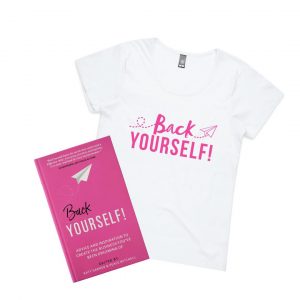CEO of Regus Australia and New Zealand, Paul Migliorini
“A truly equal world would be one where women ran half our countries and companies and men ran half our homes,” wrote Sheryl Sandberg in her book, Lean In. And it seems most people agree, with a survey conducted by global workplace provider, Regus, revealing that 89 per cent of Australian businesses believe that those companies who are not employing women returning from maternity leave are in fact missing out.
Far from returning with an obsolete address book and a rusty memory, working mums bring valuable skills and expertise to the workplace and the economy.
However, flexible working is a necessity for many working mothers, with flexible hours, job sharing, working closer to home, part-time roles and the option to video conference instead of travelling amongst the top strategies to entice more mothers back into the workforce.
In fact, key findings show that:
- 63 per cent of Australian respondents reported that more women are demanding to work remotely when they return to the workforce;
- 38 per cent of those surveyed said they are seeing women take shorter maternity leave (under three months);
- 43 per cent said that working closer to home is a key incentive;
- 93 per cent reported that working flexible hours would help returning mothers.
From the findings, we found that smaller businesses were more receptive to hiring working mums – with 52 per cent of SME’s reporting this compared to 43 per cent of larger enterprises. Rather interestingly, we found that smaller companies also valued working mothers more: 74 per cent said that they valued returning mothers because they offered skills and experience which were difficult to find in the current market.
With reports highlighting that the non-participation of women in the economy is costing as much as 27 per cent per capita GDP in some countries,[1] and that companies with more women on the board are more profitable,[2] it’s high time that Australian companies address the issue of how to adapt business practices to better suit working mothers.
Businesses need to embrace mothers returning to work. The evidence is clear that they bring key skills to the workplace, and the best way to do this is to provide flexible methods of working – it is really not surprising that more and more mums are asking for this.
It’s a vital step for organisations to open their doors to working mums and keep them open! It’s one thing to welcome working mothers back into the workforce, but it’s imperative that Australian businesses are committed to developing women’s careers and that they have access to career growth in the C-suite and other leadership roles.
[1] IMF, Women, Work and the Economy, September 2013
[2] The Financial Times, Research shows profitable companies have more women on the board, 25th July 2013




Thanks for this article. Flexpert Careers has been created to address this exact issue! We connect women with progressive businesses offering flexible work opportunities. Talented mums deserve to advance their careers without sacrificing their family commitments. With employers seeking to hire women to improve their Gender Equality Scores and slowly acknowledging the value and productivity working mums offer, there has never been a better time to secure that perfect flexible role that will help keep everyone smiling, especially the kids!
Lovely to meet you Lauren and hear about Flexpert, keep up the great work in supporting women!
Hi, loved your article! We built our business purely to respond to the growing need to support and encourage flexible working. We are two working professional mothers who created a coworking hub for parents that has a dedicated and staffed child minding facility.
Bubs and Boardrooms is a shared work space in Sydney’s Inner West specifically for parents AND It’s the first of its kind in Australia!!
In addition to working space, we provide an onsite fully staffed playspace, so that parents are readily available to children, but have the tools and resources to be able to get their work done.
Not only can you progress your career but you can be there for you baby anytime they (or you!) need it.
We are also tax deductible making us one of the most effective child care solutions for working parents in Australia.
Would love to help you and your members achieve not only their business goals but give them more time to great and nurture their families too.